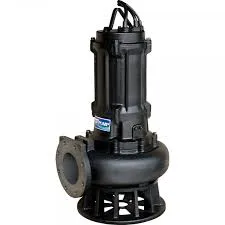English
- Afrikaans
- Albanian
- Amharic
- Arabic
- Armenian
- Azerbaijani
- Basque
- Belarusian
- Bengali
- Bosnian
- Bulgarian
- Catalan
- Cebuano
- Corsican
- Croatian
- Czech
- Danish
- Dutch
- English
- Esperanto
- Estonian
- Finnish
- French
- Frisian
- Galician
- Georgian
- German
- Greek
- Gujarati
- Haitian Creole
- hausa
- hawaiian
- Hebrew
- Hindi
- Miao
- Hungarian
- Icelandic
- igbo
- Indonesian
- irish
- Italian
- Japanese
- Javanese
- Kannada
- kazakh
- Khmer
- Rwandese
- Korean
- Kurdish
- Kyrgyz
- Lao
- Latin
- Latvian
- Lithuanian
- Luxembourgish
- Macedonian
- Malgashi
- Malay
- Malayalam
- Maltese
- Maori
- Marathi
- Mongolian
- Myanmar
- Nepali
- Norwegian
- Norwegian
- Occitan
- Pashto
- Persian
- Polish
- Portuguese
- Punjabi
- Romanian
- Russian
- Samoan
- Scottish Gaelic
- Serbian
- Sesotho
- Shona
- Sindhi
- Sinhala
- Slovak
- Slovenian
- Somali
- Spanish
- Sundanese
- Swahili
- Swedish
- Tagalog
- Tajik
- Tamil
- Tatar
- Telugu
- Thai
- Turkish
- Turkmen
- Ukrainian
- Urdu
- Uighur
- Uzbek
- Vietnamese
- Welsh
- Bantu
- Yiddish
- Yoruba
- Zulu
Telephone: +86 13120555503
Email: frank@cypump.com
Oct . 15, 2024 13:32 Back to list
Design and Efficiency of Impeller-Based Slurry Pump Systems for Industrial Applications
Understanding Impeller Slurry Pumps Design, Function, and Applications
Impeller slurry pumps are critical components in various industrial processes, particularly in sectors like mining, construction, and wastewater management. These pumps are designed to handle abrasive slurries—mixtures of liquids and solid particles that can be challenging to transport. Their unique construction and operational principles make them invaluable for efficiently pumping heavy materials without compromising performance.
Design Aspects
The core of an impeller slurry pump is its impeller, a rotating component that transfers energy from the motor to the fluid. The impeller’s design significantly affects the pump's efficiency and reliability. Impellers used in slurry pumps are often made from wear-resistant materials, such as hardened alloys, to withstand the erosive nature of the slurries they pump. Additionally, the impeller can be a single or multi-vane design, where the number of vanes influences the flow capacity and pressure characteristics of the pump.
Moreover, the casing of a slurry pump is designed with a wide inlet and volute to minimize clogging while ensuring smooth fluid flow. This ensures that larger solid particles can be passed without causing damage to the pump system. The pump's throat also plays a crucial role, as it helps to manage the transition of the slurry from the suction area to the discharge area.
Operational Principles
Impeller slurry pumps operate on the principle of centrifugal force. As the impeller spins, it generates a flow of fluid by imparting kinetic energy to the slurry. This energy causes the slurry to move outward, achieving a high velocity. The design of the volute then converts this kinetic energy into pressure, pushing the slurry through the discharge pipeline.
One of the key advantages of utilisant impeller slurry pumps is their ability to handle varying viscosities and concentrations of solid particles. They can manage everything from thin mixtures to heavy, dense slurries. This versatility makes them ideal for industries that face fluctuating material characteristics.
impeller slurry pump

Applications
Impeller slurry pumps find applications in numerous industries. In mining, they are used to transport mineral slurries—often containing abrasive materials like sand, gravel, or ore—over long distances and across challenging topographies. Their design allows for efficient extraction and processing of valuable minerals, minimizing waste and enhancing productivity.
In the construction sector, these pumps are essential for dewatering tasks. Construction sites often deal with large volumes of water mixed with soil and debris, and impeller slurry pumps efficiently handle such mixtures, keeping sites safe and operational.
Wastewater treatment facilities also benefit greatly from slurry pumps. Municipalities need to manage sewage and industrial wastewater, which can contain solid particles, sludge, and debris. Impeller slurry pumps ensure that these materials are effectively transported to treatment plants without clogging or damage.
Conclusion
The importance of impeller slurry pumps cannot be overstated, as they serve a fundamental role in various industrial processes. Their robust design, operational efficiency, and ability to handle abrasive materials make them indispensable in applications ranging from mining to wastewater management. As technology progresses, advancements in materials and design will likely enhance their performance even further, ensuring that they can meet the evolving demands of modern industries.
Investing in high-quality impeller slurry pumps is essential for companies aiming to improve operational efficiency, reduce downtime, and minimize maintenance costs. Understanding their functionality and the benefits they bring can empower industries to make informed decisions that enhance productivity and ensure long-term success in handling challenging materials.
-
Horizontal Split Case Pump with GPT-4 Turbo | High Efficiency
NewsAug.01,2025
-
ISG Series Pipeline Pump - Chi Yuan Pumps | High Efficiency, Durable Design
NewsAug.01,2025
-
Advanced Flue Gas Desulfurization Pump with GPT-4 Turbo | Durable & Efficient
NewsJul.31,2025
-
ISG Series Vertical Pipeline Pump - Chi Yuan Pumps | Advanced Hydraulic Design&Durable Construction
NewsJul.31,2025
-
ISG Series Vertical Pipeline Pump - Chi Yuan Pumps | Energy Efficient & Low Noise
NewsJul.31,2025
-
pipeline pump - Chi Yuan Pumps Co., LTD.|High Efficiency&Low Noise
NewsJul.31,2025










